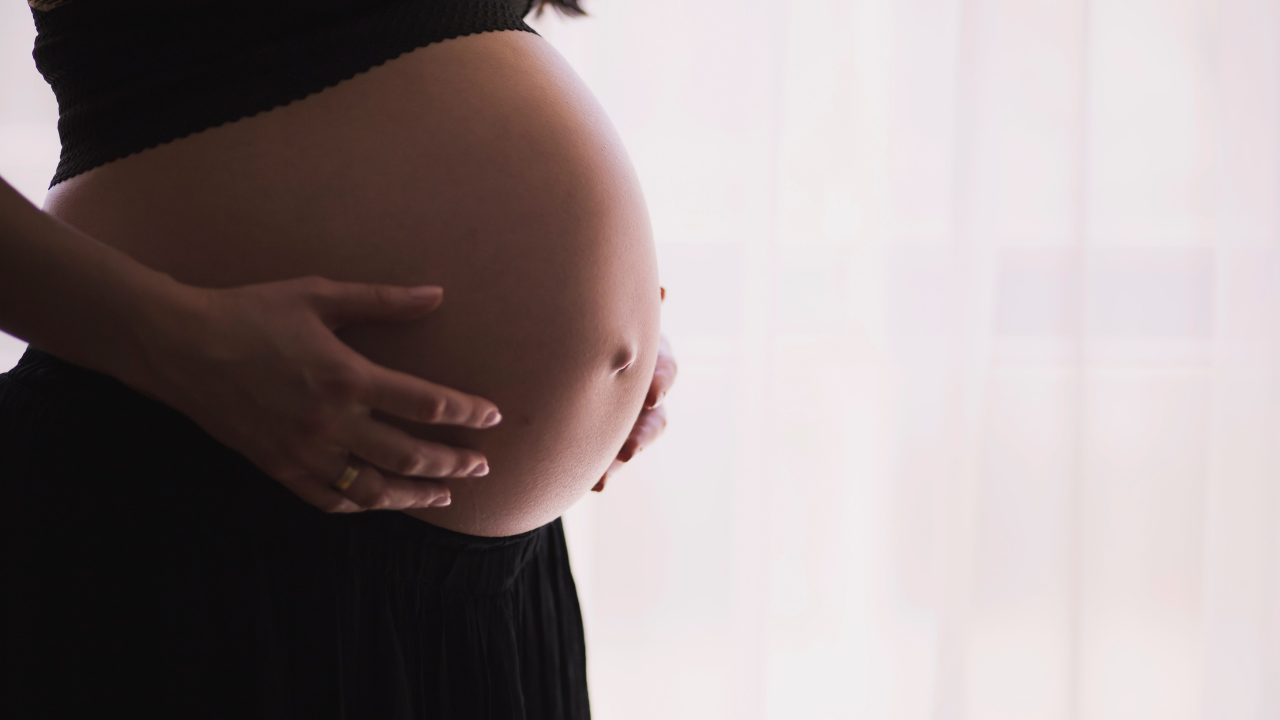
12-24 weeks
Pregnancy creates massive changes in how your body works and this is largely to do with the hormonal interactions between you and your baby(s). After all it makes sense that the baby has some control over its environment and growth.
What Body Changes You Can Expect...
Our second trimester is a great developmental milestone. Generally we can find that our nausea can start to subside and although not completely ruled out, the likelihood of unforeseen miscarriage is decreased. Changes you can expect from your body in stage are:
- Weight gain starts to increase to around 0.4-0.6kg per week (this is normal and healthy)
- Melanin is increasing so you can notice your nipples darken and you may experience ‘melasma’ a darkening of patches of your skin.
- Increase in your white blood cells (leukocytes)
- hCG levels start to decrease, so many women notice a decrease in nausea (unless hyperemesis is a genetic condition in your family)
- All senses become heightened (particularly smell and taste). Our emotional brain also undergoes a lot of changes which increases your bonding and emotional intelligence skills.
- Placenta is producing ‘Lactogen’ which creates higher amounts of sugar in your blood stream. So Gestational Diabetes can become more common here.
Signs & Symptoms To Expect
In our second trimester our hormonal changes begin to stabilise and remain steady. This can mean that our symptoms change.
- Begin to feel the baby move! (This can change depending on where your placenta is sitting)
- Due to increased baby size, you may experience increased back pain, shoulder and neck tightness. Seeking the help of a Chiropractor, osteopath or another experienced trained professional can assist you during this time.
- Morning sickness- usually subsides due to stabilising and slightly declining hCG levels.
- Increased growth of bub(s) means that your demands for iron, protein and minerals increases. If you’re not getting enough, you may notice fatigue, tiredness and dizziness. –> If you start to experience any symptoms you have never had before, consult with your doctor for a thorough assessment. (We recommend this natal supplement to naturally support your mineral stores pre-througout-post pregnancy) Remember though that this increase is only around 10%, so you’re not actually eating for two.
- Weight gain around 0.5kg per week starting around week 15.
Risks To Be Aware Of...
- Bleeding- After 20 weeks can mean that there is an issue with the structure or position of your placenta. Seek medical attention as soon as possible if this is a new and unmanaged symptom. (They may have previously explained at your 20 week scan that you have a ‘low lying placenta’ or a ‘placenta previa’ where the placenta sits in between the baby and the cervical opening)
- Soft cheese and deli meats- The reason why women are told to avoid these foods is because some of them can be effected by a bacteria called Listeriosis, however this is rare, sort of like thinking you can get salmonella poisoning from that chicken kebab you had for lunch. It can happen however its pretty rare. The trouble with this specific bacteria is that it can cross the placental barrier and infect your baby. Many experts are now saying that if avoiding these foods causes your daily intake of calcium, vitamin D and other important nutrients than the risks do not outweigh the benefits. So don’t go hell for leather, but a little blue cheese and salami never hurt anybody.
- Hyperemesis (aka uncontrollably spewing your guts up)– This is diagnosed from loss of 5% of pre-pregnancy body weight, dehydration, electrolyte imbalance and ketosis. If this occurs it can be dangerous to you and your baby, hospitalisation in the short term and long term use of anti-vomiting medications may be necessary.
- Pre-eclampsia Characterised by high blood pressure and proteins in your urine. It is caused by micro damage to your blood vessel damage between you and the placenta.
- Gestational Diabetes You will undergo a Glucose Tolerance Test (you can also ask to substitute this test for a ‘HbA1c’ which tests your average blood sugars over the last 3 months) If you develop Gestational Diabetes this increases your likelihood of developing type 2 diabetes in the future.
- Sleeping position- The SIDS foundation recommends sleeping on your back from 20 weeks to decrease risk of still birth.
Medical Process
When we fall pregnant especially for the first time, it can be confusing to know what to do next and what to expect. Should I go to the doctors? Do I need a midwife? What about an obstetrician? Will a really Sh*t myself? There are loads of questions we have, but it’s comforting to know that literally tens of thousands of people fall pregnant on any given day, so the experts know what’s up!
This is the rough process you will go though in your second trimester:
- 18-20wk scan- this is to detect the position of the baby and placenta as well as any structural abnormalities of the bub(s) (occurs in 2-3% of bubs) and the cervical length, which indicated the likelihood of pre-term labour.
- If this is your first pregnancy and you have no complicating factors, you can generally expect to visit your doctor every 7wks from weeks up until 28 gestation, then every 2 weeks up until 36 weeks.
- If you have already had previous babies and the pregnancy was straight forward than you can generally expect to visit your doctor every 6wks from weeks 12-28 gestation, then every 3 weeks up until 36 weeks.
- Above all… Educate yourself and communicate with your GP.
How To Support Your Body Naturally
Focus on making sure you’re physically comfortable, can sleep and have proper nourishment. These following tips are helpful:
- DHA (Fish oils)- This fatty acid is essential for brain, eye and nervous system development in your baby, and because our stores are stored in our brain and our baby steals them, this is thought to be a main reason for ‘baby brain’. Be sure to eat plenty of fish or supplement with 3g of DHA across the week.
- Supplement- Food is the best type of supplement you can get. Unfortunately it can be hard to get a nourishing diet if you have multiple fussy mouths to feed at home, or your access to quality foods is restricted. That’s why we recommend this natural supplement made from real food, so you get ‘almost’ everything you need in one powder, and the best thing is, you can alter your dose to support you after pregnancy too. Food is always the best source of vitamins and minerals because they never exist by themselves naturally, so when we ingest real food we’re experiencing the full effect of the whole nutrient profile.
- Exercise- Getting a brisk 60 minutes of walking in a day is a great way to help your muscles and ligaments remain strong, promote aerobic fitness and challenge your pelvic floor muscles. Just remember to walk at a pace you can still comfortably hold a conversation at, without getting puffed.
- Sleep- Supporting your body with a a fortress of pillows, in front & behind your trunk as well as under your top leg — will help to take the stress of your pelvic ligaments and allow your body to rely on the pillows for stability instead of your pelvis and spine, leaving you in a more supported position for a more restful nights sleep.
ACTRESS
CARRIE FISHER
Everything grows rounder and wider and weirder, and I sit here in the middle of it all and wonder who in the world you will turn out to be.
References
Fritz, M. and Speroff, L., 2010. Clinical Gynecologic Endocrinology And Infertility. 8th ed. Lipponcott Wilkins & Williams.
Post Natal Depletion Cure- Dr. Oscar Serrallach 2018
RANZCOG College statement. Screening in early pregnancy for adverse perinatal outcomes (C-Obs 61, July 2015: Currently under review)
Categories
All Categories anxiety autoimmune bloating body connection change fatigue female fundamentals fertility general grief identity libido menopause menstrual cycles migraines pcos periods podcast episodes pregnancy puberty recipes self love skin stress supplements thyroid what's my body telling me?



